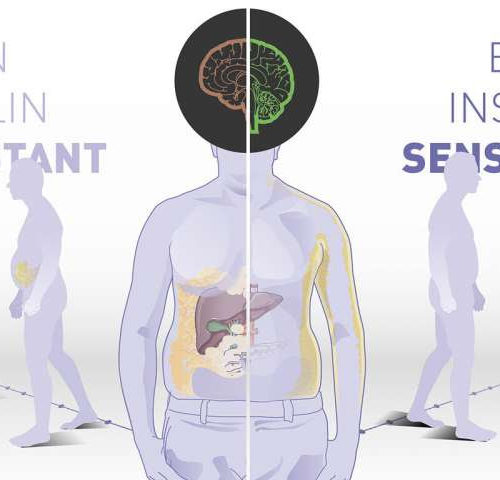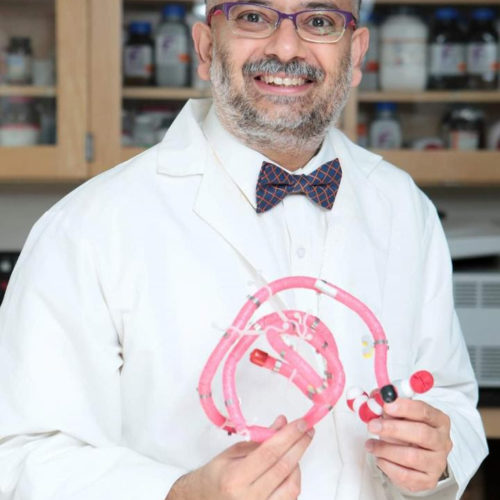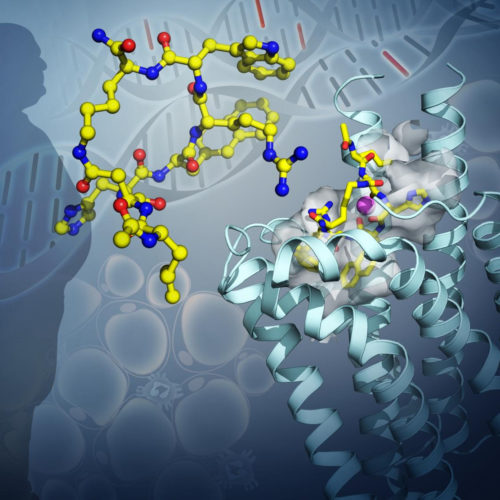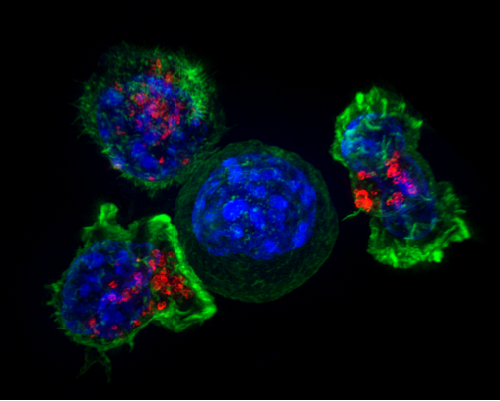By: Damian McNamara Editor’s note: Find the latest COVID-19 news and guidance in Medscape’s Coronavirus Resource Center. Since the Centers for Disease Control and Prevention (CDC) confirmed the first US case of novel coronavirus infection on January 20, much of the clinical focus has naturally centered on the virus’ prodromal symptoms and severe respiratory effects....
New Brain-Computer Interface Restores Movement and Sense of Touch to Paralysed Limbs with 90% Accuracy
A group of researchers from the Battelle Memorial Institute (BMI) in Columbus, Ohio has developed a new brain-computer interface which restores both movement and sense of touch to the limbs of patients with spinal cord injuries (SCIs). Even though such technology has already been tested in the past, what makes the new system remarkable is...
Brain insulin sensitivity determines body weight and fat distribution
by Deutsches Zentrum fuer Diabetesforschung DZD Just where fat is deposited in the body and to what degree a person may benefit from a lifestyle intervention depends, among other things, on how sensitive the brain is to insulin. If the person’s brain responds sensitively to the hormone, a significant amount of weight can be lost,...
Researchers are making recombinant-protein drugs cheaper
The mammalian cell lines that are engineered to produce high-value recombinant-protein drugs also produce unwanted proteins that push up the overall cost to manufacture these drugs. These same proteins can also lower drug quality. In a new paper in Nature Communications, researchers from the University of California San Diego and the Technical University of Denmark...
UTEP researchers develop nanohybrid vehicle to optimally deliver drugs into the human body
BY: MAHESH NARAYAN. EL PASO, Texas – Researchers in The University of Texas at El Paso’s Department of Chemistry and Biochemistry have developed a nanohybrid vehicle that can be used to optimally deliver drugs into the human body. The research was published in April 2020 in ACS Applied Materials & Interfaces. Leading the study are...
An obesity protein discovery may lead to better treatments
BY YEKATERINA KADYSHEVSKAYA, USC The discovery comes just as new data are revealing that some of the hardest hit victims of COVID-19 suffer from obesity and other chronic conditions A USC-led international team of scientists has found the precise shape of a key player in human metabolism, which could lead the way to better treatments...
Clascoterone cream safe, effective for acne treatment
Adelaide Hebert, M.D., from the University of Texas Health Science Center in Houston, and colleagues assessed the safety and efficacy of clascoterone cream, 1 percent, a novel topical androgen receptor inhibitor, in two phase 3 clinical trials (including a total 1,440 patients) in which patients were randomly assigned to clascoterone cream, 1 percent, or a...
Higher manganese intake may be tied to lower type 2 diabetes risk
Jung Ho Gong, from Brown University in Providence, Rhode Island, and colleagues evaluated the association between manganese intake and the risk for type 2 diabetes in 84,285 postmenopausal women without a history of diabetes participating in the national Women’s Health Initiative Observational Study (WHI-OS). Results were validated in the 62,338 women who participated in the...
Scientists shed light on action of key tuberculosis drug
by University of Birmingham A new study led by scientists at the University of Birmingham has shed fresh light on how a key front-line drug kills the tuberculosis bacterium. The research paves the way for development of new antibiotic drugs targeted at emerging strains of TB. Tuberculosis (TB) remains a global health challenge, responsible for...
New targeted agent produces considerable responses in patients with uterine cancer
by Dana-Farber Cancer Institute In its first clinical trial in patients with a hard-to-treat form of uterine cancer, a targeted drug that subjects tumor cells to staggering levels of DNA damage caused tumors to shrink in nearly one-third of patients, investigators at Dana-Farber Cancer Institute report. The preliminary results, to be presented online at Thursday’s...








